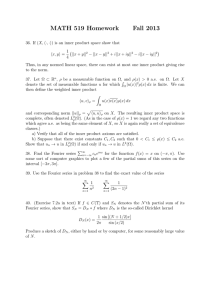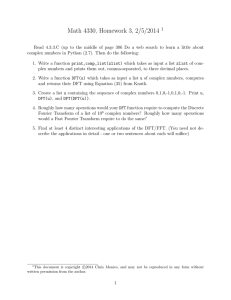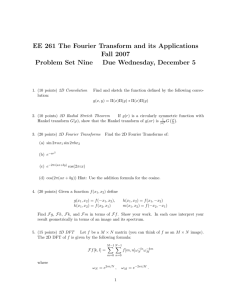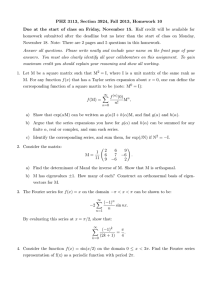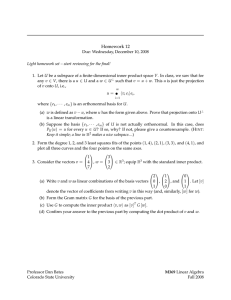PPT: Lecture 2
advertisement
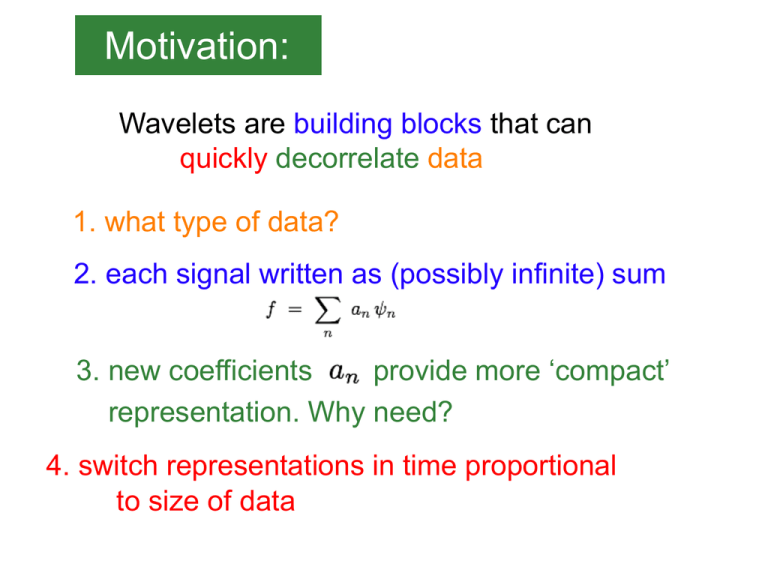
Motivation: Wavelets are building blocks that can quickly decorrelate data 1. what type of data? 2. each signal written as (possibly infinite) sum 3. new coefficients provide more ‘compact’ representation. Why need? 4. switch representations in time proportional to size of data Inner product spaces and the DFT Familiar 3-space Basis: Energy: real: complex: real: complex: Geometry via inner products dot product, inner product real: complex: capture basic geometry of 3-space correlation: parallel perpendicular Inner product space . capture linear combinations and geometry vector space (over reals or complex numbers) such that for all in , defn Energy: in . Basic Example: Inner product: Energy: Standard basis: Standard representation: . Basic Example: Addition structure on . : defn modular addition. Set , Roots of unity: Multiplication structure on : Basic Example: Notation: . denotes all functions With inner product becomes inner product space: Fundamental Theorem: (Standard Basis) is orthonormal basis for . . and DFT Important idea for DFT: each in defines function such that . Fundamental Theorem: (Fourier Basis) is orthonormal basis for DFT: Standard basis . Fourier basis DFT . use signal analysis notation tion: Fourier representation: ier Transform: where measures correlation of with each DFT as Matrix But there are multiplications here. What happened to the idea of doing things quickly? Fast Fourier Transform: FFT Fourier Matrix N = 2: Examples: N = 4 = 2x2: still 16 multiplications, but it looks promising! Examples: N=8=2x2x2: Examples: N=8=2x2x2: Now 2 x 3 x 8 multiplications. See any patterns?
